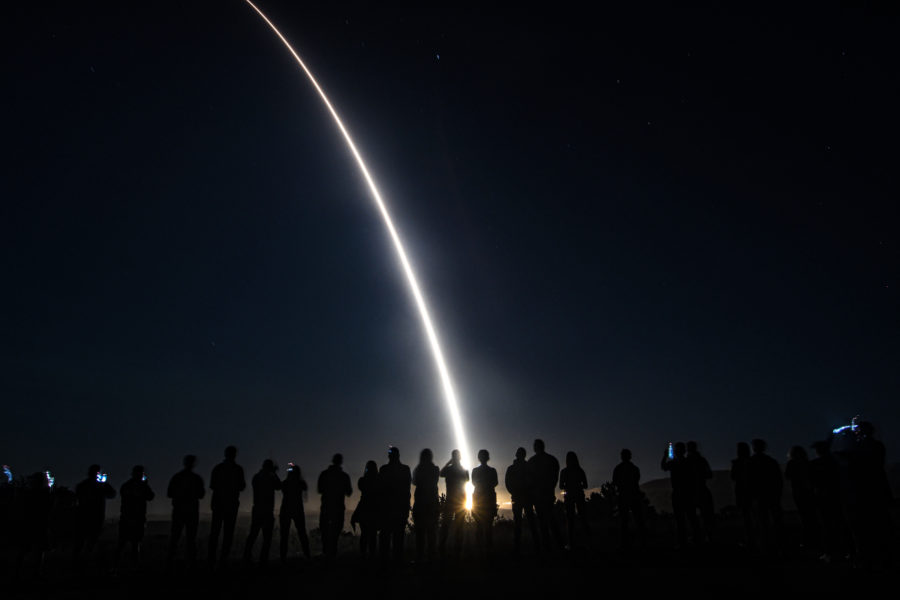Russia has violated the landmark New START treaty that cut long-range nuclear arms by refusing to allow on-site inspections, the State Department said Jan. 31.
Despite tensions between Moscow and Washington over Russia’s war in Ukraine, the U.S. had previously said New START was holding up. But without on-site inspections, the U.S. cannot precisely verify the number of warheads Russia has deployed, which has made assessing Moscow’s compliance with the accord more difficult.
The State Department noted, however, that the number of deployed warheads was likely under the treaty ceiling of 1,550 at the end of 2022 and that if Russia had exceeded the limit in earlier months, the number was not militarily significant.
The State Department report to Congress marks the first time that the U.S. has alleged that Russia has violated the accord since it took effect in 2011. The treaty has been extended to 2026, and Russia’s refusal to allow inspections and to meet with American officials to discuss compliance issues has fueled doubts about the possibility of negotiating a follow-on agreement that would put guardrails on the nuclear competition between Washington and Moscow.
“We have long supported strategic arms control with Russia, voting for New START in 2010 and advocating for the Treaty’s extension during both the Trump and Biden administrations,” said a statement by U.S. Senators Jack Reed (D-R.I.), chairman of the Senate Armed Services Committee; Bob Menendez (D-N.J.), chairman of the Senate Foreign Relations Committee; and Mark Warner (D-Va.), chairman of the Senate Select Committee on Intelligence. “But to be very clear, compliance with New START treaty obligations will be critical to Senate consideration of any future strategic arms control treaty with Moscow.”
Republican lawmakers expressed concern that Russia’s refusal to allow inspections under New START might be followed by more significant violations of the accord and said the U.S. should be ready to make upward adjustments in its own arsenal.
“We urge President Biden to direct the Department of Defense to prepare for a future where Russia may deploy large numbers of warheads, well in excess of New START Treaty limits,” read a statement from Rep. Mike Rogers (R-Ala.), chairman of the House Armed Services Committee: Rep. Doug Lamborn (R-Colo.), chairman of the Subcommittee on Strategic Forces; and U.S. Senators Roger Wicker (R-Miss.), and Deb Fischer (R-Neb.) of the Senate Armed Services Committee.
Until 2020, inspections had been carried out routinely. But in March of that year, inspections were paused by mutual consent due to the COVID-19 pandemic. When the U.S. told Russia in the summer of 2022 that it wanted to resume inspections, Moscow resisted.
Russia continued to argue that the COVID-19 protocols were still an obstacle. Russia’s real reason for denying inspections, the State Department report said, “centered on Russian grievances regarding U.S. and other countries’ measures imposed on Russia in response to its unprovoked, full-scale invasion of Ukraine.”
The absence of inspections isn’t the only compliance issue. The U.S. sought to discuss compliance issues in the treaty’s Bilateral Consultative Commission, which is a forum for the countries to discuss the treaty’s implementation. Russia initially agreed to a meeting of the commission in November, but then balked. The State Department said that is another issue of Russian “noncompliance.”
Russian officials have told the U.S. they still support the treaty, and U.S. officials are urging Russia to correct its violations so the treaty can be preserved.
“The United States remains ready to work constructively with Russia to fully implement the New START Treaty,” a State Department spokesperson said.

